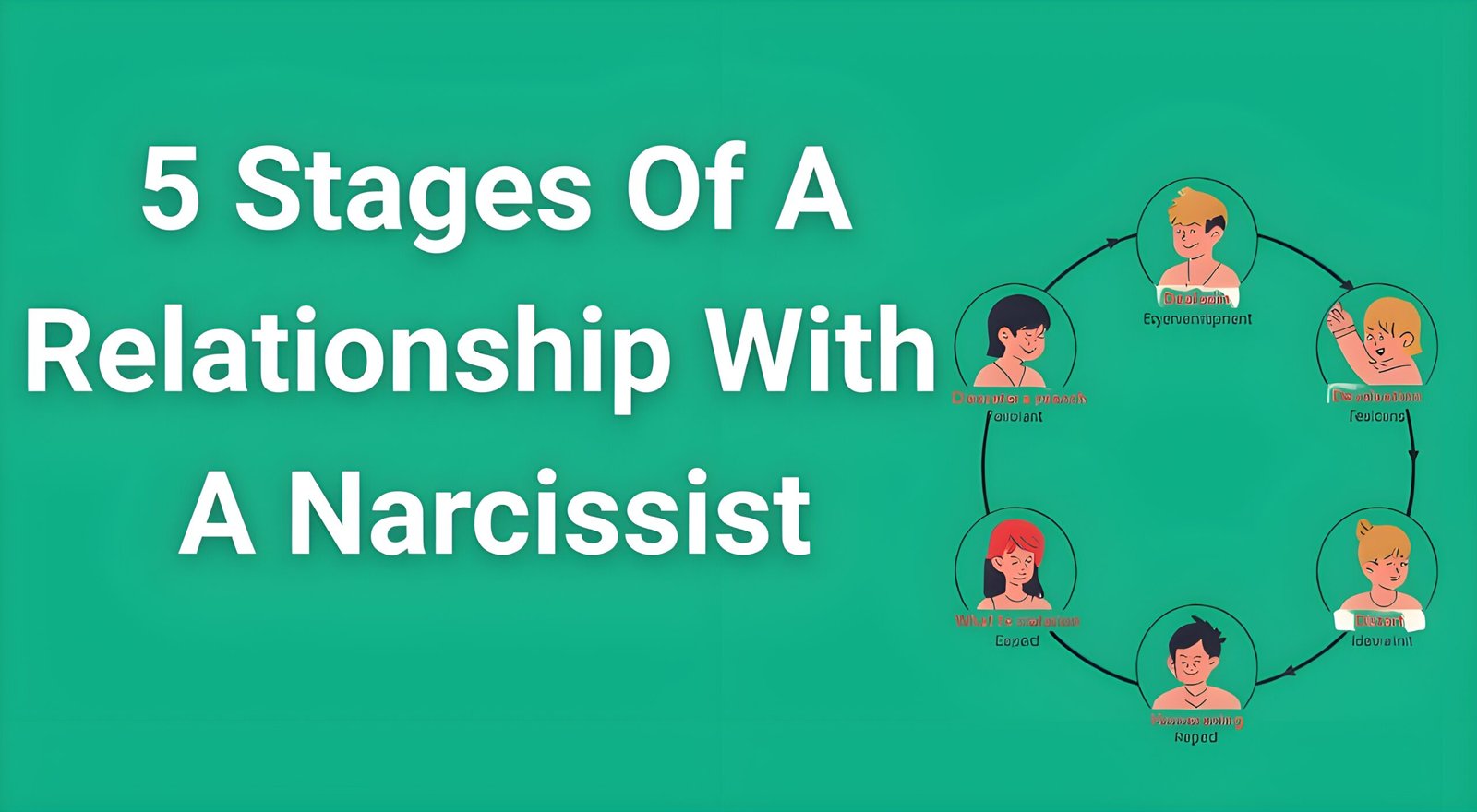Have you ever felt emotionally drained after interacting with a woman who seemed charming on the surface but left you questioning your own reality? Understanding the traits of a narcissist woman in a relationship can be life-changing knowledge that protects your emotional wellbeing and helps you recognize manipulation before it takes hold.
- Understanding Female Narcissism: The Hidden Epidemic
- The 15 Shocking Traits of a Narcissist Woman in Relationships
- The Psychology Behind Female Narcissism: Why These Traits Develop
- The Hidden Impact: How Narcissistic Women Affect Their Victims
- Breaking Free: Recognizing You’re Not the Problem
- Recovery and Protection: Moving Forward from Narcissistic Abuse
- FAQ: Common Questions About Narcissistic Women
- Conclusion: Your Freedom Begins with Recognition
Unlike male narcissists who often display obvious grandiosity, female narcissists typically operate through covert manipulation, making their toxic behaviors harder to identify. Research indicates that while 7.7% of men develop Narcissistic Personality Disorder (NPD), 4.8% of women also exhibit these destructive patterns—often in ways that society overlooks due to feminine stereotypes.
If you’ve been walking on eggshells, constantly apologizing, or feeling like you’re “going crazy” in a relationship, you may be dealing with a narcissistic woman. These 15 shocking traits will help you recognize the red flags and understand exactly what you’re facing.
Understanding Female Narcissism: The Hidden Epidemic
Before diving into specific traits, it’s crucial to understand that narcissistic women often present differently than their male counterparts. While men with NPD typically display overt aggression and grandiose behaviors, women are more likely to use emotional manipulation, passive-aggression, and victim-playing tactics.
This covert approach makes female narcissism particularly dangerous because it flies under the radar. Society expects women to be nurturing and empathetic, which provides perfect camouflage for narcissistic behavior. The result? Victims often blame themselves for the dysfunction rather than recognizing the systematic psychological manipulation occurring.
Research from the Journal of Personality Psychology shows that female narcissists score significantly higher on vulnerable narcissism scales, using emotional exploitation and relational aggression as their primary weapons. Understanding these patterns is the first step toward protecting yourself from psychological harm.
The 15 Shocking Traits of a Narcissist Woman in Relationships
1. Master of Emotional Manipulation
A narcissistic woman excels at emotional manipulation, using guilt, shame, and fear to control those around her. She might say things like “After everything I’ve done for you” or “You’re just like your father” to trigger emotional responses that serve her agenda.
Unlike direct confrontation, she employs subtle tactics that leave you feeling responsible for her emotions. If you’re upset about her behavior, she’ll somehow turn the conversation to make you the problem. This manipulation is so skillful that victims often find themselves apologizing for things they didn’t do wrong.
Example: Sarah consistently borrows money from friends but never repays them. When confronted, she immediately plays the victim: “I can’t believe you’d bring up money when you know how stressed I am about work. I thought you cared about me.”
2. The Perpetual Victim
One of the most recognizable traits of a narcissist woman is her ability to position herself as the victim in every situation. No matter what happens, she’s always the wronged party who deserves sympathy and special treatment.
This victim mentality serves multiple purposes: it deflects accountability, generates narcissistic supply (attention and sympathy), and manipulates others into catering to her needs. She becomes so skilled at this role that even when she’s clearly at fault, she’ll find ways to make others feel guilty for confronting her.
The perpetual victim also uses this position to isolate partners from friends and family. “They don’t understand what you put me through” becomes a common refrain that gradually erodes your support network.
3. Obsession with Image and Status
Narcissistic women are typically obsessed with appearances, social status, and maintaining a perfect public image. This goes far beyond normal self-care—it becomes an all-consuming need to appear superior to others.
She might spend hours perfecting social media posts, constantly name-drop influential people, or become genuinely distressed if she perceives someone else as having something “better” than her. Material possessions, brand names, and luxury items become symbols of her perceived superiority.
In relationships, this manifests as treating partners like accessories. You’re valuable only insofar as you enhance her image or social status. The moment you “embarrass” her or fail to reflect positively on her reputation, you’ll face her wrath.
4. Extreme Competitiveness with Other Women
Female narcissists view other women as threats to their superiority and will go to extraordinary lengths to maintain their position at the top of any social hierarchy. This isn’t healthy competition—it’s a ruthless campaign to undermine and diminish other women.
She might spread subtle rumors about female friends, make backhanded compliments designed to lower self-esteem, or actively sabotage other women’s relationships and opportunities. This behavior intensifies when she perceives another woman as more attractive, successful, or well-liked.
Red flag: Pay attention to how she talks about other women. Does she consistently find flaws in every female she encounters? Does she seem genuinely happy when other women succeed, or does she always find ways to diminish their achievements?
5. Passive-Aggressive Communication Style
Rather than direct confrontation, narcissistic women excel at passive-aggressive behavior. They’ll give you the silent treatment, make subtle digs disguised as “jokes,” or use sarcasm to express their displeasure without taking responsibility for their hostility.
This communication style keeps you constantly off-balance because you can never directly address the issue. When you confront the passive-aggression, she’ll deny any negative intent: “I was just kidding” or “You’re being too sensitive” become standard deflections.
The passive-aggression also serves as punishment for perceived slights. Instead of healthy communication about problems, she’ll make you pay through emotional withdrawal, subtle sabotage, or creating an uncomfortable atmosphere until you comply with her unspoken demands.
6. Lack of Genuine Empathy
Despite potentially appearing caring and nurturing on the surface, narcissistic women fundamentally lack genuine empathy. They might go through the motions of concern, but their responses are calculated rather than authentic emotional connections.
This becomes evident during your vulnerable moments. Instead of offering real support, she might use your pain as an opportunity to make the situation about herself, minimize your feelings, or even secretly enjoy your distress if it makes her feel superior.
The lack of empathy also means she cannot truly understand or care about the impact of her behavior on others. Even when presented with clear evidence of the harm she’s caused, she’ll focus on defending herself rather than acknowledging your pain.
7. Explosive Reactions to Criticism
Any form of criticism, no matter how gentle or constructive, triggers explosive reactions in narcissistic women. Their fragile ego cannot tolerate the suggestion that they’re anything less than perfect.
This might manifest as rage, crying fits, accusations, or complete emotional shutdown. The intensity of the reaction is typically disproportionate to the criticism offered. A simple request like “Could you please clean up after yourself?” might trigger hours of drama and punishment.
Over time, this trains everyone around her to avoid giving any feedback, creating an environment where her problematic behavior goes unchecked and actually escalates.
8. Pathological Need for Control
Narcissistic women have an overwhelming need to control their environment and the people in it. This control might be subtle—manipulating situations to get her way—or more overt through rules, demands, and emotional blackmail.
In relationships, this manifests as controlling who you see, how you spend your time, what you wear, or even how you think about situations. She needs to be the center of your universe and will systematically work to eliminate any person, activity, or interest that competes for your attention.
The need for control extends to information. She might go through your phone, interrogate you about your activities, or create elaborate tests to ensure your loyalty and compliance.
9. Grandiose Sense of Entitlement
Despite potentially appearing modest or humble, narcissistic women harbor a deep sense of entitlement. They believe they deserve special treatment, constant admiration, and exceptional consideration from everyone around them.
This entitlement manifests in expecting others to prioritize their needs, accommodate their schedules, and provide emotional support without reciprocation. Rules that apply to others somehow don’t apply to them.
In relationships, this means expecting constant devotion while giving little in return. Your needs, feelings, and desires become secondary to maintaining their comfort and happiness.
10. Emotional Vampirism
Narcissistic women are emotional vampires who drain the energy and life force from those around them. Every interaction seems to leave you feeling depleted, confused, or emotionally exhausted.
This happens because they constantly demand emotional labor—reassurance, attention, validation, problem-solving—while offering little genuine emotional support in return. Conversations inevitably become about their problems, their achievements, or their needs.
The emotional vampirism intensifies during your good moments. When you’re happy or successful, she’ll find ways to dim your joy through subtle criticism, redirecting attention to herself, or creating drama that forces you to focus on her instead.
11. Triangulation and Divide-and-Conquer Tactics
One of the most destructive traits of a narcissist woman is her use of triangulation—bringing third parties into conflicts to maintain control and create chaos. She might share private information about you with others, play people against each other, or create competition for her attention.
This serves multiple purposes: it keeps everyone off-balance, prevents people from comparing notes about her behavior, and ensures she remains the center of attention even during conflicts.
Example: She might tell her sister “I’m worried about John’s drinking” while telling you “My sister thinks you’re not good enough for me.” Both statements might be fabricated, but they create tension and insecurity that serves her control needs.
12. Rewriting History and Gaslighting
Narcissistic women are masters at rewriting history to serve their narrative. They’ll deny conversations that happened, claim they said things they never said, or insist that events unfolded differently than they actually did.
This gaslighting is psychological warfare designed to make you question your own memory and perception of reality. Over time, this erosion of confidence makes you increasingly dependent on their version of events and less likely to trust your own instincts.
The gaslighting often follows patterns: deny the event happened, attack your memory or mental state, claim you misunderstood their intentions, or accuse you of being “too sensitive” or “dramatic.”
13. Weaponizing Sexuality and Intimacy
Narcissistic women often use sexuality and intimacy as tools of manipulation rather than expressions of genuine connection. Sex might be withheld as punishment, used as a reward for compliance, or weaponized to create jealousy and insecurity.
This extends beyond physical intimacy to emotional intimacy. She might share deeply personal information to create false closeness, only to use that vulnerability against you later. Intimate moments become transactions rather than genuine emotional connections.
The manipulation of intimacy serves to keep partners trauma-bonded—stuck in cycles of withdrawal and reconnection that create addictive-like attachment patterns that are difficult to break.
14. Financial Manipulation and Control
Money becomes another tool of control for narcissistic women. This might involve controlling family finances, making unilateral spending decisions, hiding financial information, or using money to punish and reward behavior.
She might also engage in financial exploitation—borrowing money with no intention of repayment, running up debts in your name, or sabotaging your career advancement to maintain financial dependence.
The financial manipulation extends to using money as a weapon during conflicts. Threatening financial consequences, withholding agreed-upon support, or making you feel guilty about expenditures while freely spending on herself.
15. Creating and Thriving in Drama
Narcissistic women are drama magnets who seem to attract chaos wherever they go. While they often present themselves as victims of circumstances, closer examination reveals they’re usually the common denominator in these dramatic situations.
Drama serves their psychological needs by generating attention, creating opportunities to play the victim, and keeping everyone around them emotionally destabilized and focused on crisis management rather than examining her behavior patterns.
The drama might involve fabricated emergencies, exaggerated health issues, manufactured conflicts with others, or creating crises that require immediate attention and derail any attempts at addressing relationship issues.
The Psychology Behind Female Narcissism: Why These Traits Develop
Understanding the psychology behind these behaviors doesn’t excuse them, but it provides context for why narcissistic women develop these destructive patterns. Research suggests that narcissism often stems from early childhood trauma, inconsistent caregiving, or environments where emotional needs weren’t met appropriately.
Female socialization adds another layer of complexity. Society’s expectations of women as nurturing and self-sacrificing create cognitive dissonance with narcissistic traits, leading to more covert expressions of these behaviors. The result is often vulnerable or covert narcissism that’s harder to identify but equally damaging.
The neurobiological aspect is also significant. Narcissistic abuse creates trauma bonding—a psychological phenomenon where intermittent reinforcement (cycles of punishment and reward) creates addiction-like attachment patterns. This explains why people often feel unable to leave narcissistic relationships despite recognizing their toxicity.
The Hidden Impact: How Narcissistic Women Affect Their Victims
Living with or being in a relationship with a narcissistic woman creates profound psychological damage that extends far beyond typical relationship problems. Victims often develop symptoms similar to post-traumatic stress disorder, including hypervigilance, anxiety, depression, and chronic self-doubt.
The systematic erosion of reality through gaslighting creates a phenomenon called “abuse amnesia,” where victims begin to doubt their own perceptions and memories. This cognitive disruption makes it increasingly difficult to recognize abuse or take appropriate action to protect themselves.
Many victims find themselves completely isolated from support systems, financially dependent, or so emotionally depleted that leaving feels impossible. The trauma bonding created through intermittent reinforcement makes the relationship feel addictive, creating genuine withdrawal symptoms when attempting to break free.
If you’re recognizing these patterns in your own life, understand that professional guidance can be invaluable in breaking free from these destructive cycles. Getting clarity on your specific situation from someone who understands narcissistic manipulation can be the first step toward reclaiming your power and sanity.
Breaking Free: Recognizing You’re Not the Problem
One of the most crucial realizations for anyone dealing with a narcissistic woman is understanding that you’re not the problem. The systematic manipulation, gaslighting, and emotional abuse are designed to make you believe you’re responsible for the dysfunction in the relationship.
This realization often comes with a mixture of relief and grief—relief that you’re not “crazy” or fundamentally flawed, and grief for the time, energy, and emotional wellbeing that’s been lost to these toxic dynamics.
Breaking free from narcissistic relationships requires more than willpower alone. The neurological addiction created through trauma bonding means that leaving often feels impossible despite recognizing the toxicity. This is why many people find themselves returning to abusive situations repeatedly, each time promising themselves they won’t go back.
Understanding the science behind trauma bonding can be liberating. It explains why “just leaving” advice feels impossible to follow and why traditional relationship counseling often fails in these situations. The brain literally believes it needs this person to survive, creating withdrawal symptoms when attempting to break contact.
For those ready to break free from these patterns, specialized recovery approaches that address the neurological aspects of trauma bonding can be life-changing. These methods work by rewiring the brain’s reward pathways rather than relying on willpower alone.
Recovery and Protection: Moving Forward from Narcissistic Abuse
Recovery from narcissistic abuse involves multiple stages, from initial crisis management to long-term healing and prevention of future toxic relationships. The process requires patience with yourself and understanding that healing isn’t linear.
The first stage typically involves crisis stabilization—learning to manage the immediate emotional chaos and developing safety strategies. This might include creating physical and emotional distance, establishing emergency protocols for moments of weakness, and beginning to rebuild your reality testing abilities.
The second stage focuses on breaking the addiction-like attachment patterns through structured daily practices designed to rewire neural pathways. This phase is crucial because it addresses the biological aspects of trauma bonding that keep people stuck in toxic cycles.
The final stage involves identity reconstruction and future-proofing—remembering who you were before the abuse, developing healthy boundaries, and learning to recognize red flags before they trap you in new toxic situations.
Professional support during this process can significantly accelerate healing and prevent relapses into old patterns. Whether through individual therapy, specialized recovery programs, or expert analysis of your specific situation, having guidance from someone who understands narcissistic abuse dynamics can be invaluable.
FAQ: Common Questions About Narcissistic Women
Can a narcissistic woman change?
While personality disorders are generally stable patterns, change is theoretically possible with intensive therapy and genuine self-awareness. However, most narcissists lack the self-awareness and motivation required for meaningful change. It’s important not to stay in toxic situations hoping for transformation that may never come.
How do I know if I’m overreacting to normal relationship problems?
Trust your instincts. If you consistently feel emotionally drained, find yourself walking on eggshells, questioning your own memory, or feel like you’re “going crazy,” these are signs of psychological manipulation rather than normal relationship challenges. Healthy relationships don’t systematically erode your mental health.
Should I confront a narcissistic woman about her behavior?
Direct confrontation typically escalates narcissistic behavior rather than improving it. Narcissists cannot tolerate criticism and will often respond with increased manipulation, rage, or punishment. Instead, focus on setting boundaries, protecting yourself, and seeking professional guidance.
Why do narcissistic women seem to target specific types of people?
Narcissists are skilled at identifying people with high empathy, strong caregiving instincts, past trauma, or current vulnerabilities. They look for individuals who are likely to excuse their behavior, provide abundant emotional supply, and be less likely to set firm boundaries or leave the relationship.
Can couples therapy help with a narcissistic partner?
Traditional couples therapy is often ineffective and sometimes harmful when one partner has narcissistic traits. Narcissists typically use therapy sessions to further manipulate their partners and gather ammunition for future psychological warfare. Individual therapy for the non-narcissistic partner is usually more beneficial.
How long does recovery from narcissistic abuse take?
Recovery timelines vary significantly depending on the duration and severity of abuse, individual resilience factors, and access to appropriate support. Many people notice improvements within weeks of implementing proper recovery strategies, while complete healing might take months to years. The key is having the right approach rather than relying on time alone.
Conclusion: Your Freedom Begins with Recognition
Recognizing the traits of a narcissist woman in a relationship is often the first step toward reclaiming your mental health and emotional freedom. These 15 shocking behaviors represent systematic patterns of psychological manipulation designed to control, exploit, and diminish their victims.
Understanding that female narcissism often operates covertly makes these relationships particularly dangerous because the abuse is harder to identify and easier to rationalize. The combination of societal expectations about feminine behavior and sophisticated manipulation techniques creates perfect storms for psychological destruction.
If you’ve recognized these patterns in your own life, remember that acknowledging the problem is a sign of strength, not weakness. Many people spend years trapped in these cycles because they don’t understand the psychological mechanisms at play. You’re not alone, and you’re not powerless.
Breaking free from narcissistic relationships requires more than good intentions—it requires understanding the neurobiological aspects of trauma bonding and implementing specific strategies designed to address these addiction-like attachment patterns. With the right approach and support, complete freedom is possible.
Your peace, sanity, and emotional wellbeing are worth protecting. Don’t let another day pass giving your precious life energy to someone who sees you merely as a source of supply rather than a human being deserving of love and respect. The pattern ends with you, starting today.






